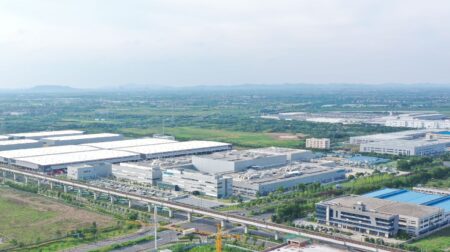The UK government has pledged £9.7m for the National Centre for Universities and Business (NCUB) through 2029 to accelerate commercialisation of research, including in robotics and AI, technology secretary Peter Kyle told the Universities UK conference in Exeter.
He said the funding would “link universities with entrepreneurs and industry leaders to make the UK a more attractive destination for investment, and crucially, commercialisation”.
Kyle framed the move as part of a wider digital and R&D agenda, trailing an upcoming ‘AI for Science’ strategy and arguing that AI “will change the nature of what it is to be a university”.
For labs building autonomous systems, he signalled an expectation to “embrace digital,” with AI-native methods accelerating discovery in medicine, science and space – read across to perception, simulation, optimisation and lab automation that underpin next-gen robotics.
Positioning universities as engines of local growth, Kyle urged leaders to make commercial impact “a bigger part of [their] public profile”, adding that students should see university as “a pathway to starting a business”.
NCUB’s four-year runway is designed to convert mechatronics, sensing and autonomy research into investable partnerships, pilots and scale-ups.
Alongside NCUB, ministers are ramping the Local Innovation Partnerships Fund (LIPF) – up to £500m nationally — with at least £30m earmarked for each of 10 initial regions across the UK.
UK Research and Innovation (UKRI) said seven English mayoral regions are confirmed, with Glasgow City Region, Cardiff Capital Region and a Northern Ireland corridor also named; other areas will be able to compete.
Allocations are expected to start flowing from April 2026 via regional coalitions of civic authorities, universities and business.
Kyle’s message to vice-chancellors was to specialise and lead. “Strong partnerships, opportunities to specialise, and embracing digital” were his three asks to anchor regional growth around clear strengths.
For robotics, LIPF favours cluster bids that bundle open testbeds, SME access, skills pathways and end-user demonstrators in factory automation, service robotics or agri-tech.
To illustrate specialisation, Kyle pointed to Plymouth’s marine autonomy ecosystem anchored by the University of Plymouth.
Smart Sound Plymouth provides an instrumented proving area for uncrewed and autonomous maritime systems; the university’s Cyber-SHIP Lab stress-tests maritime operational technology; and the Turnchapel Wharf waterfront cluster hosts ocean-robotics firms scaling deployments.
This summer, Oshen ramped production of 15 C-Star autonomous ocean robots from Turnchapel Wharf – a concrete example of research-to-manufacture capability in place.
“Every vice-chancellor I’ve spoken to sees their institution as an economic engine,” Kyle said, urging universities to “double down” on commercial partnerships and specialisms that industry recognises.
NCUB has confirmed the four-year settlement and will publish its forward plan later this year.
Join more than 11,000 industry leaders at Robotics and Automation Exhibition on 25-26 March 2026 at NEC Birmingham to explore cutting-edge technologies, connect with peers and discover the latest innovations shaping the future of manufacturing, engineering and logistics. Register for free now to secure your place at this premier event!









